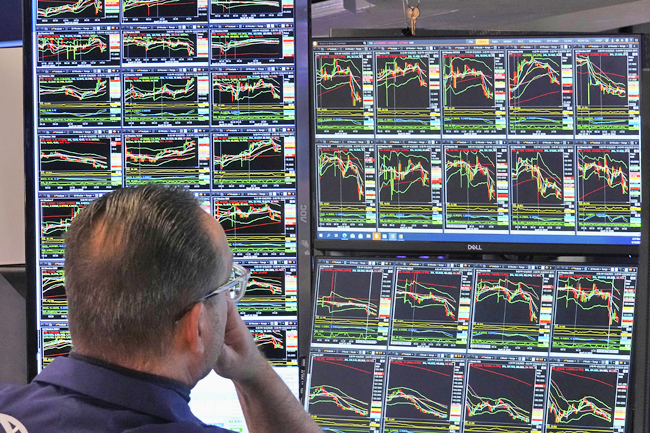AP – As Big Tech kicks off its quarterly earnings season this week, the industry’s bellwether companies have been thrust into a cauldron of uncertainty and turmoil that they didn’t anticipate when Donald Trump re-entered the White House nearly 100 days ago.
Since President Trump’s January 20 inauguration, Big Tech stocks have been on a see-sawing ride that has eviscerated trillions of dollars in shareholder wealth amid an onslaught of tariffs and other potentially detrimental actions.
It’s the polar opposite of what Apple Chief Executive Officer (CEO) Tim Cook, Tesla CEO Elon Musk, Google CEO Sundar Pichai, Facebook founder Mark Zuckerberg and Amazon founder Jeff Bezos hoped for when they assembled behind Trump as he was sworn in.
That display of unity reflected a belief that Trump’s second stint in the White House would be a refreshing change from the heavy-handed regulation of President Joe Biden’s administration while unleashing even more lucrative opportunities in artificial intelligence (AI) and deal-making. But the Trump administration’s policies so far have vexed Big Tech’s “Magnificent Seven” companies – a group consisting of Apple, Microsoft, Nvidia, Amazon, Tesla, Google parent Alphabet and Facebook parent Meta Platforms. Since Trump’s inauguration, the Magnificent Seven’s combined market value has plunged by USD3.8 trillion, or 22 per cent, as of April 20.
The financial damage was even more severe a few days after Trump’s April 2 unveiling of sweeping reciprocal tariffs that would have exacted a heavy toll on Big Tech’s supply chains in China and other key markets around the globe.
A temporary freeze on the majority of the most punitive tariffs and an exemption from most of the fees on electronics coming in from China has provided some relief, but Trump has made it clear the reprieve may be short-lived.
That has left the specter of Trump’s ongoing trade war hanging over Big Tech, whose influence extends around the world.
“The mass confusion created by this constant news flow out of the White House is dizzying for the industry and investors and creating massive uncertainty and chaos for companies trying to plan their supply chain, inventory, and demand,” Wedbush Securities analyst Dan Ives said.







